
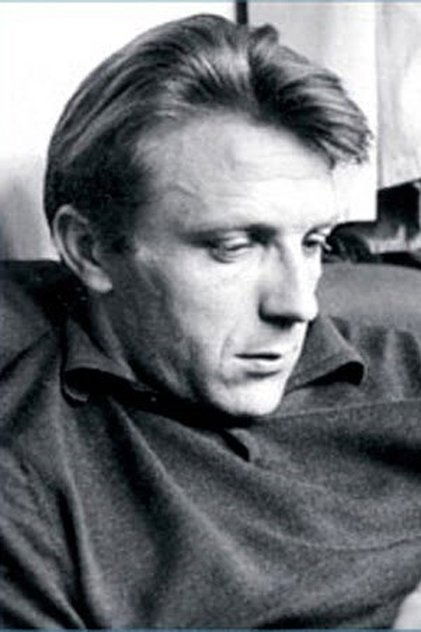
Jean Eustache
Born: November 30, 1938
Died: November 5, 1981
in Pessac, Gironde, France
Died: November 5, 1981
in Pessac, Gironde, France
Jean Eustache was born on November 30, 1938 in Pessac, Gironde, France. He was a director and editor, known for The Mother and the Whore (1973), Mes Petites Amoureuses (1974) and Les photos d'Alix (1980). He died on November 3, 1981 in Paris, France.
Movies for Jean Eustache...
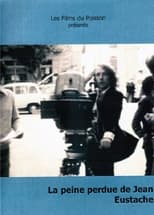
Title: Jean Eustache's Wasted Breath
Character: Self (archival footage)
Released: May 14, 1997
Type: Movie
Ángel Díaz’s documentary The Lost Sorrows of Jean Eustache, concentrates on Eustache as cinematic thinker and archivist of his own life. Actors read texts written by Eustache, including the following reflection: “The role of the author in cinema should be one of non-intervention.” This sentence reminds us that he belongs to the greatest of film traditions (he cites Griffith, Renoir, Dreyer, and Lang as his models), the one that sees cinema as a matter of placing the camera in front of reality and capturing it ardently, precisely, and without tricks.

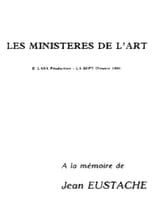
Title: The Ministries of Art
Character: Self (archive footage)
Released: February 11, 1989
Type: Movie
Philippe Garrel’s documentary on France’s second wave of masterful filmmakers. Featuring Jean Eustache, Chantal Akerman, André Téchiné, Leos Carax, Jacques Doillon and Benoit Jacquot.


Title: To Jean Eustache
Character: Self
Released: August 27, 1982
Type: Movie
Milena Gabanelli sits in her room while listening to one of the last voice recordings of Jean Eustache.


Title: A Dirty Story
Released: November 9, 1977
Type: Movie
A group of friends listen as one man tells them a story about a time when, in a small cafe, he discovered a peephole into the ladies' bathroom and became addicted to looking through it at female genitals. They ask him questions and come to conclusions about sex. This is a filmed, scripted version. Then, the actual person who this happened to relates the same story; this time, however, it is an unscripted documentary, in which the same things occur as in the scripted one.

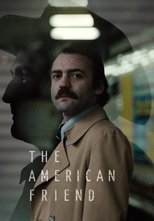
Title: The American Friend
Character: Friendly Man
Released: June 24, 1977
Type: Movie
Tom Ripley, an American who deals in forged art, is slighted at an auction in Hamburg by picture framer Jonathan Zimmerman. When Ripley is asked by gangster Raoul Minot to kill a rival, he suggests Zimmerman, and the two, exploiting Zimmerman's terminal illness, coerce him into being a hitman.

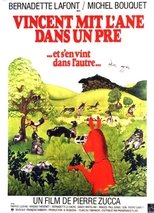
Title: Vincent mit l'âne dans un pré (et s'en vint dans l'autre)
Character: un videur
Released: May 12, 1976
Type: Movie
This is the tale of a father-son duo who are unable to leave each other. The trouble begins when the son decides to destroy his father's image.

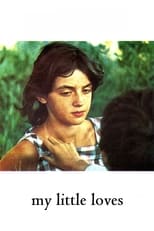
Title: My Little Loves
Character: Man on bench (uncredited)
Released: December 20, 1974
Type: Movie
Daniel lives with his grandmother and, after a year of high school, goes to live with his mother in the south of France; a harsher environment which rapidly changes his perception of friends, work, and women.


Title: Céline and Julie Go Boating
Character: Spectateur au cabaret/lecteur a la bibliohèque (uncredited)
Released: September 18, 1974
Type: Movie
A mysteriously linked pair of young women find their daily lives pre-empted by a strange boudoir melodrama that plays itself out in a hallucinatory parallel reality. An undisputed classic of the French New Wave, Jacques Rivette’s Celine and Julie Go Boating is a delightful movie about the spiritual journey of a pair of young women, told with a playful approach to the cinematic form. A masterpiece of cinematic creativity, Rivette, the same mind behind 1969’s L’amour fou, effortlessly draws the viewer into the whimsical world of the titular protagonists.

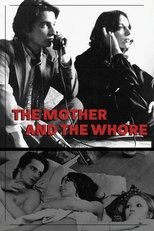
Title: The Mother and the Whore
Character: Man in Sunglasses in Store (uncredited)
Released: May 1, 1973
Type: Movie
Aimless young Alexandre juggles his relationships with his girlfriend, Marie, and a casual lover named Veronika. Marie becomes increasingly jealous of Alexandre's fling with Veronika and as the trio continues their unsustainable affair, the emotional stakes get higher, leading to conflict and unhappiness.



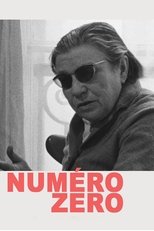
Title: Numéro zéro
Character: Self
Released: January 1, 1971
Type: Movie
A family portrait in which the director profiles his grandmother, Odette Robert. Eustache includes in the film the conditions of its production — he is seated at the table with her, pours her some whiskey, speaks with the camera operator, manipulates the clapboard at the head and tail of the reels, and even takes a phone call. Robert, who was seventy-one, speaks rapidly and tells the story of her life, starting from her early childhood in villages in the Bordeaux region of France. A shorter version of the film ("Odette Robert") was edited in 1980 to be broadcast on television on TF1. The complete film only gained exposure in 2002, when it was salvaged by Boris Eustache, Thierry Lounas, João Bénard da Costa, Jean-Marie Straub, and Pedro Costa.

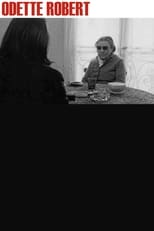
Title: Odette Robert
Character: Self
Released: January 1, 1971
Type: Movie
Eustache’s grandmother Odette Robert was a key figure in his life, serving as a substitute mother during much of his childhood (My Little Loves was dedicated to her). In 1971, he recorded an interview with her that went largely unseen until 2003—Eustache never screened the complete film publicly, although a radically truncated version was presented on television. In a string of long, stationary takes, the camera watches over Eustache’s shoulder while he pours countless glasses of whiskey and Odette tells the stories of her life. A number of her themes resonate with those of Eustache’s films: cruelty, male philandering, the Rosière festival of Pessac. Number Zero is a return to origins—of cinema and of the self—and an experiment in narration, both restrained and deeply personal.

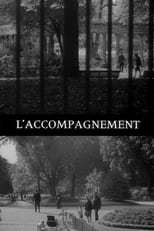
Title: The Accompaniment
Released: April 20, 1969
Type: Movie
A musician has to compose a commissioned work for a film. But his mind is guided by external solicitations that constantly divert him from his work.

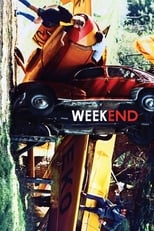
Title: Weekend
Character: L'Auto-Stoppeur (uncredited)
Released: December 29, 1967
Type: Movie
A supposedly idyllic weekend trip to the countryside turns into a never-ending nightmare of traffic jams, revolution, cannibalism and murder as French bourgeois society starts to collapse under the weight of its own consumer preoccupations.

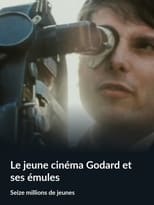
Title: Young Cinema: Godard and His Emulators
Character: Self
Released: October 22, 1967
Type: Movie
Influenced and inspired by Jean-Luc Godard, some young french directors (Jean Eustache, Francis Leroi, Jean-Michel Barjol, Romain Goupil, Luc Moullet) are talking about their problems in producing less expensive and more free films in the french industry of cinema of the 60's.

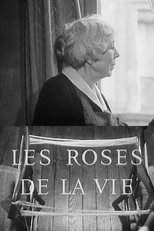
Title: Les Roses de la vie
Released: January 1, 1962
Type: Movie
François Truffaut said of Paul Vecchiali in his early days that he was "the only true heir of Jean Renoir." The first short film of this director, who was to become a singular figure of independent French cinema, follows the path of an elderly woman towards her memories and beyond. Attentive, affectionate and sometimes cruel, Vecchiali's camera invents its own expressive language.
